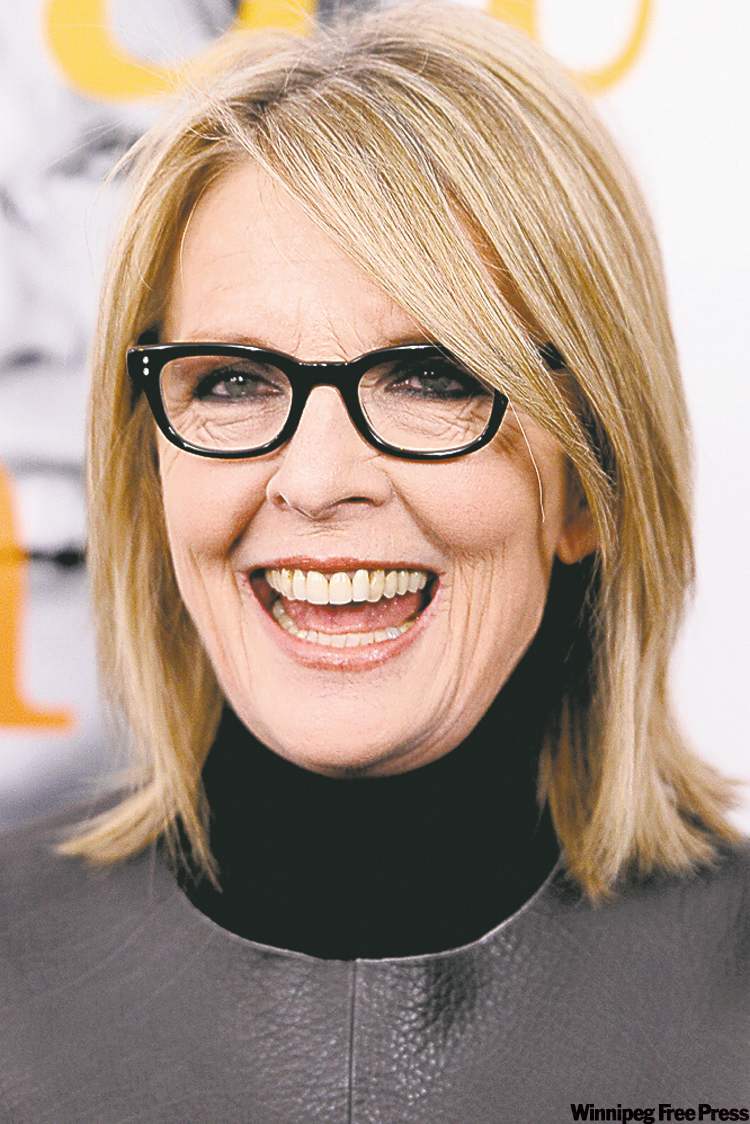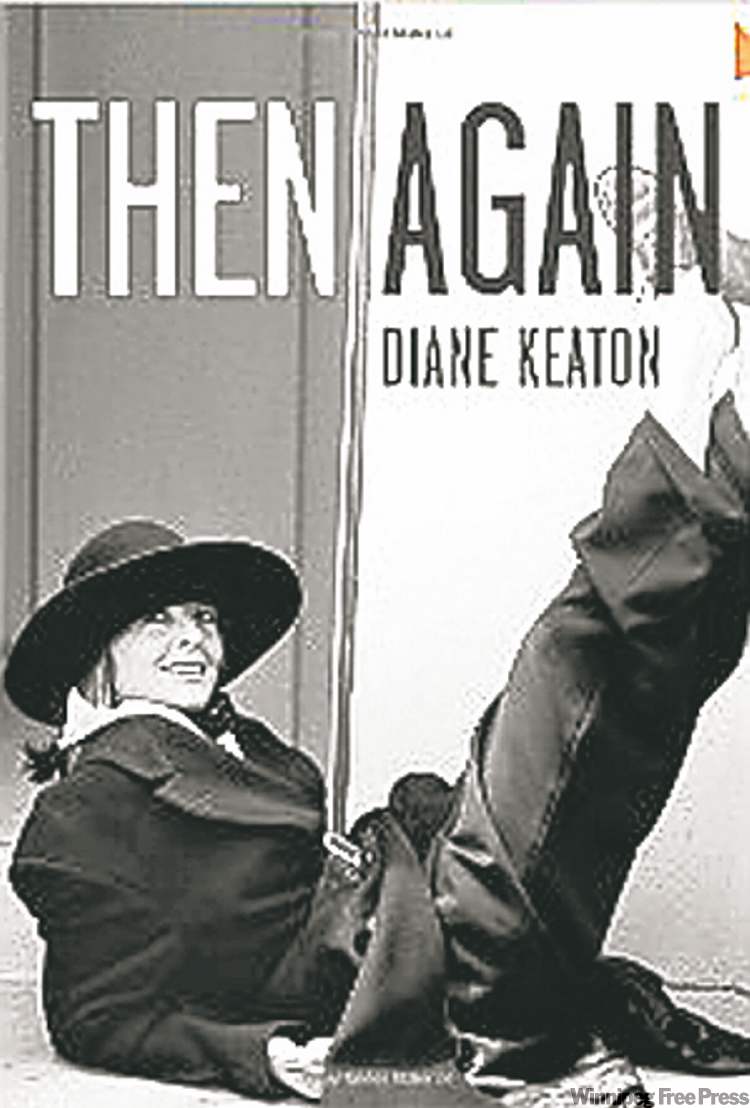Diane Keaton doesn’t dish dirt in warm, appealing memoir
Advertisement
Read this article for free:
or
Already have an account? Log in here »
To continue reading, please subscribe:
Monthly Digital Subscription
$1 per week for 24 weeks*
- Enjoy unlimited reading on winnipegfreepress.com
- Read the E-Edition, our digital replica newspaper
- Access News Break, our award-winning app
- Play interactive puzzles
*Billed as $4.00 plus GST every four weeks. After 24 weeks, price increases to the regular rate of $19.00 plus GST every four weeks. Offer available to new and qualified returning subscribers only. Cancel any time.
Monthly Digital Subscription
$4.75/week*
- Enjoy unlimited reading on winnipegfreepress.com
- Read the E-Edition, our digital replica newspaper
- Access News Break, our award-winning app
- Play interactive puzzles
*Billed as $19 plus GST every four weeks. Cancel any time.
To continue reading, please subscribe:
Add Free Press access to your Brandon Sun subscription for only an additional
$1 for the first 4 weeks*
*Your next subscription payment will increase by $1.00 and you will be charged $16.99 plus GST for four weeks. After four weeks, your payment will increase to $23.99 plus GST every four weeks.
Read unlimited articles for free today:
or
Already have an account? Log in here »
Hey there, time traveller!
This article was published 10/12/2011 (5058 days ago), so information in it may no longer be current.
Imagine quirky, wacky, neurotic Diane Keaton growing up in a happy, healthy family.
What is the world of tell-all memoirs coming to?
Keaton’s Then Again, which focuses on her relationship with her mother but also tell the story of her whole family, does not reveal struggles with hidden addictions. It is not a tale of an impoverished childhood; Diane Hall and her three siblings received a healthy dose of emotional and physical care. It does not reveal sexual abuse. No parent abandons the children.

Then Again flies in the face of the wisdom that happy families are all alike and every unhappy family is unhappy in its own way. For the Hall clan — the same who inspired Woody Allen to write Annie Hall; in fact, he told Keaton her family’s quirky ways would make him rich — is like no other. Each member finds their own way in life, each quirky, wacky, a bit neurotic but ultimately happy.
Keaton has been a movie star for more than 30 years. She’s starred in landmark movies — all three Godfathers, Annie Hall for which she won the best actress Oscar, Manhattan, Reds, The First Wives Club. She’s known for relationships with mega stars: Allen; Warren Beatty; and Al Pacino, with whom she had an on-again, off-again relationship for years before he finally admitted to their therapist he had no desire to marry her.
What a tell-all this could have been, a bestseller full of juicy industry gossip and embarrassing personal details.
But she fought the urge and instead presents a beautifully written story that deals with the universal theme of mother-daughter relationships, along the way touching on the thwarted goals of her mother’s generation, her own neurosis and pressures on women to conform.
Dorothy Hall — Keaton adopted her mother’s maiden name professionally — was a gifted, ambitious woman who raised four children then earned a degree in her 40s and built a career as a photographer and artist. But she never attained the sort of success she longed for, although that does not mar her enjoyment of work and family. Keaton learns of the depth of her mother’s frustration only from the 85 journals Dorothy meticulously kept before Alzheimer’s stopped her. She struggled with the disease for 15 years before her death in 2008.
Keaton intertwines her own words about her life and her mother’s life with her mother’s own words from the journals. There’s a chapter on Keaton, then on Dorothy, then back to Keaton. Sometimes the life experiences line up, sometimes they don’t. For example, Keaton goes through in her 60s what her mother went through in her 20s as Keaton was 50 when she adopted her first child and her mother had child rearing all wrapped up by her 40s.
As Keaton writes, “At 54 Dorothy was put out to pasture with 32 more years of living staring her in the face… At 65 there is no pasture, and I’m not lonely.”
Keaton talks about her eating disorder, the closest she comes to the tell-all formula. But it’s clear she is discussing an occupational hazard for actresses. “Spare me,” writes Keaton, of suggestions bulimia is caused by parents, their unrealistic expectations, their social status, their inability to show affection, their weight. Keaton developed an eating disorder, she said, because of her industry’s pressure to be thin.

That little bit of common sense is just part of why she and her book are so appealing. That warmth and humanity she’s known for on the screen comes through in her writing. The reader has a genuine sense of getting to know the real woman behind the actress.
In reality, Then Again would have been a great read even if Keaton were not famous.
Julie Carl is deputy editor of the Winnipeg Free Press.


